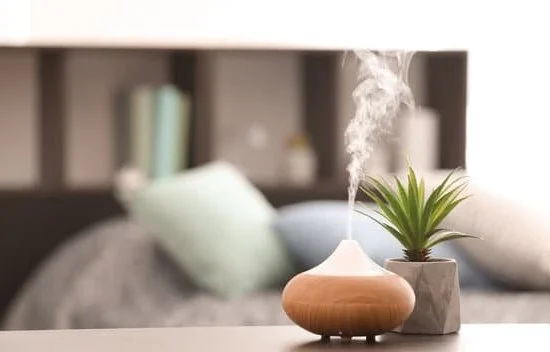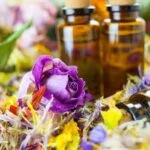Are you feeling stressed and overwhelmed? Learn how to use aromatherapy to reduce stress and find peace and relaxation.
Aromatherapy, the use of essential oils for therapeutic purposes, has been used for centuries to promote overall wellbeing and alleviate stress. In this article, we will explore the science behind aromatherapy, the best essential oils for stress relief, different methods of application, creating a relaxing environment, recipes for aromatherapy blends, practical tips for incorporating aromatherapy into your daily routine, as well as additional techniques such as massage and DIY products.
Aromatherapy is a holistic healing treatment that uses natural plant extracts to promote health and well-being. When used correctly, aromatherapy can help reduce stress, anxiety, and improve sleep quality. The sense of smell is closely linked with memory and emotion, so inhaling essential oils can have a powerful impact on our emotional state. Understanding how these aromatic compounds work can help us harness their potential for stress reduction.
Choosing the right essential oils is crucial for effective stress relief through aromatherapy. Different essential oils have unique properties and benefits that can help alleviate stress, promote relaxation, and uplift the mood. From lavender and chamomile to citrus and peppermint, there are a wide variety of essential oils known for their calming effects. Learning which ones are best suited for your needs is an important step in using aromatherapy to reduce stress.
The Science Behind Aromatherapy
The use of aromatherapy to reduce stress has become increasingly popular in recent years, as people seek natural and holistic ways to manage their mental and emotional well-being. But how exactly do essential oils work to reduce stress? The science behind aromatherapy lies in the interaction between the compounds in essential oils and the brain.
When inhaled, the aromatic molecules from essential oils travel through the olfactory system to the brain’s limbic system, which is responsible for regulating emotions, memory, and stress responses. This direct pathway allows essential oils to have a rapid and profound effect on our emotional state. For example, inhaling lavender essential oil has been shown to decrease heart rate and blood pressure, promoting relaxation and reducing anxiety levels.
Another way essential oils work to reduce stress is through their ability to impact neurotransmitters in the brain. Certain compounds found in essential oils can stimulate the release of serotonin, a neurotransmitter known for its mood-lifting and stress-reducing effects. Additionally, some essential oils have been found to lower levels of cortisol, a hormone associated with stress, when used consistently over time.
Moreover, the act of massaging essential oils into the skin or using them in bath soaks can provide physical relief from tension while also engaging the senses through smell – further enhancing their stress-reducing benefits. By understanding how essential oils interact with our bodies and brains, we can effectively harness their power to promote relaxation and minimize feelings of stress and anxiety.
| Essential Oil Compound | Effect on Stress |
|---|---|
| Linalool (found in lavender) | Decreases heart rate and blood pressure |
| Limonene (found in citrus oils) | Stimulates serotonin release |
| Beta-caryophyllene (found in black pepper) | Lowers cortisol levels |
Choosing the Right Essential Oils for Stress Relief
Aromatherapy is an effective method for reducing stress and promoting relaxation. Essential oils have been used for centuries for their therapeutic properties, and many people find them to be a valuable tool in managing stress. When it comes to choosing the right essential oils for stress relief, it’s important to select ones that have calming and soothing effects on the mind and body.
Lavender oil is one of the most popular essential oils for stress relief. It has been shown to have a calming effect on the nervous system and can help reduce anxiety and promote relaxation. Another great option is chamomile oil, which has gentle sedative properties and can help soothe nerves and ease tension. Bergamot oil is also known for its mood-lifting properties, making it a great choice for combating stress and mild depression.
When using aromatherapy to reduce stress, it’s important to choose high-quality essential oils from reputable sources. Look for pure, therapeutic-grade oils that are free from synthetic additives or contaminants. It’s also important to consider personal preferences and sensitivities when choosing essential oils for stress relief.
In addition to these three popular options, other essential oils such as rose, ylang-ylang, and frankincense can also be effective in reducing stress and promoting relaxation. Experimenting with different combinations of essential oils can help you find the perfect blend for your individual needs. Learning how to use aromatherapy to reduce stress involves some trial and error but can lead to finding the best methods that work well for you.
| Essential Oil | Properties |
|---|---|
| Lavender | Calming, soothing, reduces anxiety |
| Chamomile | Sedative, soothes nerves |
| Bergamot | Mood-lifting |
Methods of Aromatherapy
Aromatherapy is an effective way to reduce stress and promote relaxation, and there are several methods for using essential oils to achieve these benefits. Whether using a diffuser, applying topically, or inhaling the aroma directly, each method offers its own unique advantages for stress relief. Here are the different methods of aromatherapy and how they can be used to reduce stress:
1. Diffusers: Using an essential oil diffuser is one of the most popular methods of aromatherapy. The device disperses the aroma of the essential oil into the air, allowing you to breathe in the scent and experience its calming effects. Diffusers come in various types, including ultrasonic, nebulizing, and heat diffusers, each with their own pros and cons. When choosing a diffuser for stress relief, consider factors such as room size, noise level, and runtime.
2. Topical Application: Applying essential oils topically can also be an effective way to reduce stress. When diluted with a carrier oil and gently massaged into the skin, certain essential oils can have a direct calming effect on the body. Common areas for topical application include pulse points (wrists, temples) and pressure points (neck, shoulders). It’s important to always do a patch test before applying any essential oil to a larger area of your skin.
3. Inhalation Techniques: Inhaling the aroma of essential oils is another method for harnessing their stress-reducing benefits.
This can be done by adding a few drops of oil to a bowl of hot water and breathing in the steam or by placing a few drops on a tissue or cotton ball and inhaling deeply. Another inhalation technique is using personal inhalers or nasal inhalers that allow you to take your favorite calming scent with you wherever you go.
By incorporating these different methods into your daily routine, you can discover how to use aromatherapy to reduce stress effectively and enjoy its relaxing benefits throughout your day.
Creating a Relaxing Aromatherapy Environment
Creating a relaxing environment is essential when using aromatherapy to reduce stress. By setting the right mood, you can maximize the effectiveness of essential oils and create a peaceful space for relaxation and rejuvenation. Whether you are at home or in a professional setting, here are some tips for setting the mood for your aromatherapy session.
First and foremost, consider the lighting in the room. Soft, natural light or candles can help create a calming ambiance. Harsh fluorescent lighting can be counterproductive to the relaxation process. Additionally, consider using essential oil diffusers that also have soft ambient lighting to enhance the overall atmosphere.
Next, think about the sounds in the environment. Soft music, nature sounds, or white noise can contribute to a soothing experience. Some people also enjoy complete silence during their aromatherapy sessions. Experiment with different audio options to discover what works best for you.
Temperature also plays a crucial role in creating a relaxing environment for aromatherapy. Whether it’s adding an extra blanket in winter or cooling down with a fan in summer, finding the ideal temperature for your comfort is essential.
Lastly, consider incorporating calming elements such as plants, comfortable seating, and cozy blankets into your space to enhance the overall ambiance and ensure maximum relaxation during your aromatherapy session. By paying attention to these details, you can elevate your experience of using aromatherapy to reduce stress and promote well-being.
Aromatherapy Blends for Stress Relief
When using aromatherapy to reduce stress, it’s important to choose the right essential oil blends to maximize its effectiveness. Here are some recommended blends and combinations that have been found to be particularly beneficial for stress relief:
- Lavender and Chamomile: This calming combination of essential oils can help reduce anxiety and promote relaxation. It’s perfect for use in a diffuser or as a topical application before bedtime.
- Bergamot, Ylang Ylang, and Frankincense: This blend is known for its mood-lifting properties and can help alleviate feelings of stress and tension. It’s ideal for use during meditation or yoga practice.
- Orange, Lemon, and Grapefruit: Citrus essential oils are uplifting and energizing, making them great for boosting mood and reducing fatigue caused by stress. Use this blend in a diffuser during the day or add a few drops to your bath water.
In addition to these specific blends, you can also create your own custom combinations based on your personal preferences and needs. Experiment with different essential oils to find the perfect blend that works best for you.
Remember to always dilute essential oils properly before applying them to the skin, especially if using them in massage or bath soak recipes. And if you’re unsure about which oils are safe for you, consult with a certified aromatherapist or healthcare professional before use.
By incorporating these recommended aromatherapy blends into your daily routine, you can effectively reduce stress and promote a sense of calm and well-being.
Incorporating Aromatherapy Into Your Daily Routine
Diffusing Essential Oils
One of the easiest ways to incorporate aromatherapy into your daily routine is by using a diffuser. This method allows you to enjoy the therapeutic benefits of essential oils by dispersing their aroma throughout the air in your home or workspace. Simply add a few drops of your favorite essential oil or blend to the diffuser, turn it on, and let the soothing scent fill the room.
Topical Application
Another way to use essential oils in your daily routine is through topical application. When diluted with a carrier oil, such as coconut or jojoba oil, certain essential oils can be applied directly to the skin for a calming effect. Consider creating your own massage oil or adding a few drops of lavender or chamomile essential oil to your body lotion for a relaxing moisturizing experience.
Inhalation Techniques
Inhaling the aroma of essential oils is another effective method for incorporating aromatherapy into your daily routine. You can simply open a bottle of your preferred essential oil and take a few deep breaths, or create your own portable inhaler by adding essential oils to a cotton ball or handkerchief that you can keep with you throughout the day.
By incorporating these practical tips for using essential oils into your daily routine, you can easily reap the stress-reducing benefits of aromatherapy and promote an overall sense of calm and well-being in your everyday life.
Additional Stress-Reducing Aromatherapy Techniques
When it comes to reducing stress through aromatherapy, there are several additional techniques that can be utilized to maximize its effectiveness. These techniques include massage, bath soaks, and do-it-yourself (DIY) products. Each of these methods offers unique benefits and can be easily incorporated into your daily routine for stress relief.
Massage With Aromatherapy Oils
One of the most effective ways to use aromatherapy for stress reduction is through massage. Simply dilute your chosen essential oil with a carrier oil, such as coconut or jojoba oil, and apply it directly to the skin. The soothing scents will help relax both the mind and body, while the act of massaging helps release tension and promote relaxation. Consider seeking out a professional massage therapist who specializes in aromatherapy for an indulgent stress-reducing experience.
Aromatherapy Bath Soaks
Another great way to incorporate aromatherapy into your stress-relief routine is through bath soaks. Adding a few drops of your favorite essential oil to a warm bath can create a luxurious and calming experience.
The steam from the bathwater will diffuse the scent throughout the room, allowing you to breathe in the calming aroma as you soak away your worries. Additionally, taking time for a relaxing bath can also be a form of self-care and an opportunity for much-needed alone time.
DIY Aromatherapy Products
For those who enjoy getting crafty, creating DIY aromatherapy products can be a fun and rewarding way to reduce stress. This can include making your own candles, room sprays, or body scrubs using essential oils.
Not only does this allow you to customize the scents to fit your preferences, but engaging in creative activities can also be therapeutic in itself. By incorporating these homemade aromatherapy products into your daily routine, you can continue reaping the stress-relieving benefits of essential oils throughout the day.
Conclusion
In conclusion, aromatherapy offers a natural and effective way to reduce stress and promote relaxation in daily life. By understanding the science behind aromatherapy and selecting the right essential oils, individuals can harness the power of this practice to improve their overall well-being. Whether through the use of diffusers, topical application, or inhalation techniques, there are various methods to incorporate aromatherapy into one’s routine for stress relief.
By creating a calming environment and utilizing specific aromatherapy blends, individuals can maximize the effectiveness of this practice in reducing stress. Additionally, incorporating techniques such as massage, bath soaks, and DIY products can further enhance the benefits of aromatherapy for stress reduction. It is important to remember that embracing aromatherapy for a stress-free lifestyle requires consistent effort and a willingness to explore different methods and blends to find what works best for each individual’s unique needs.
Incorporating aromatherapy into daily routines through practical tips ensures that individuals can experience the full potential of this natural remedy for stress relief. With dedication and experimentation with various essential oils and techniques, it is possible to discover the ideal combination that promotes relaxation and reduces stress on a regular basis. Ultimately, by embracing the power of aromatherapy, individuals can cultivate a more tranquil and harmonious lifestyle.
Frequently Asked Questions
How Do You Use Aromatherapy for Stress Relief?
Aromatherapy can be used for stress relief by inhaling the scent of essential oils or using them in a diffuser. The aromatic compounds in the oils can help calm the mind and reduce feelings of stress.
Where Do I Apply Essential Oils for Stress and Anxiety?
Essential oils can be applied to pulse points such as the wrists, temples, and neck for stress and anxiety relief. They can also be diluted with a carrier oil and applied to the chest or back to promote relaxation.
Does Aromatherapy Stress Relief Really Work?
Many people find that aromatherapy stress relief really does work for them. The calming scents of essential oils can help create a sense of relaxation, reduce feelings of anxiety, and improve overall well-being. While it may not work for everyone, many people experience positive results from using aromatherapy for stress relief.

Are you looking for a natural way to improve your health and wellbeing?
If so, aromatherapy may be the answer for you.





